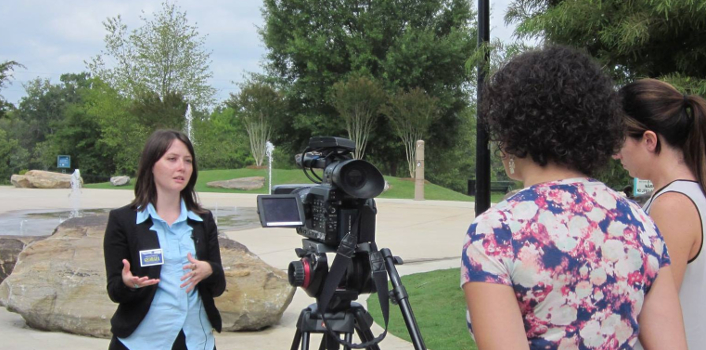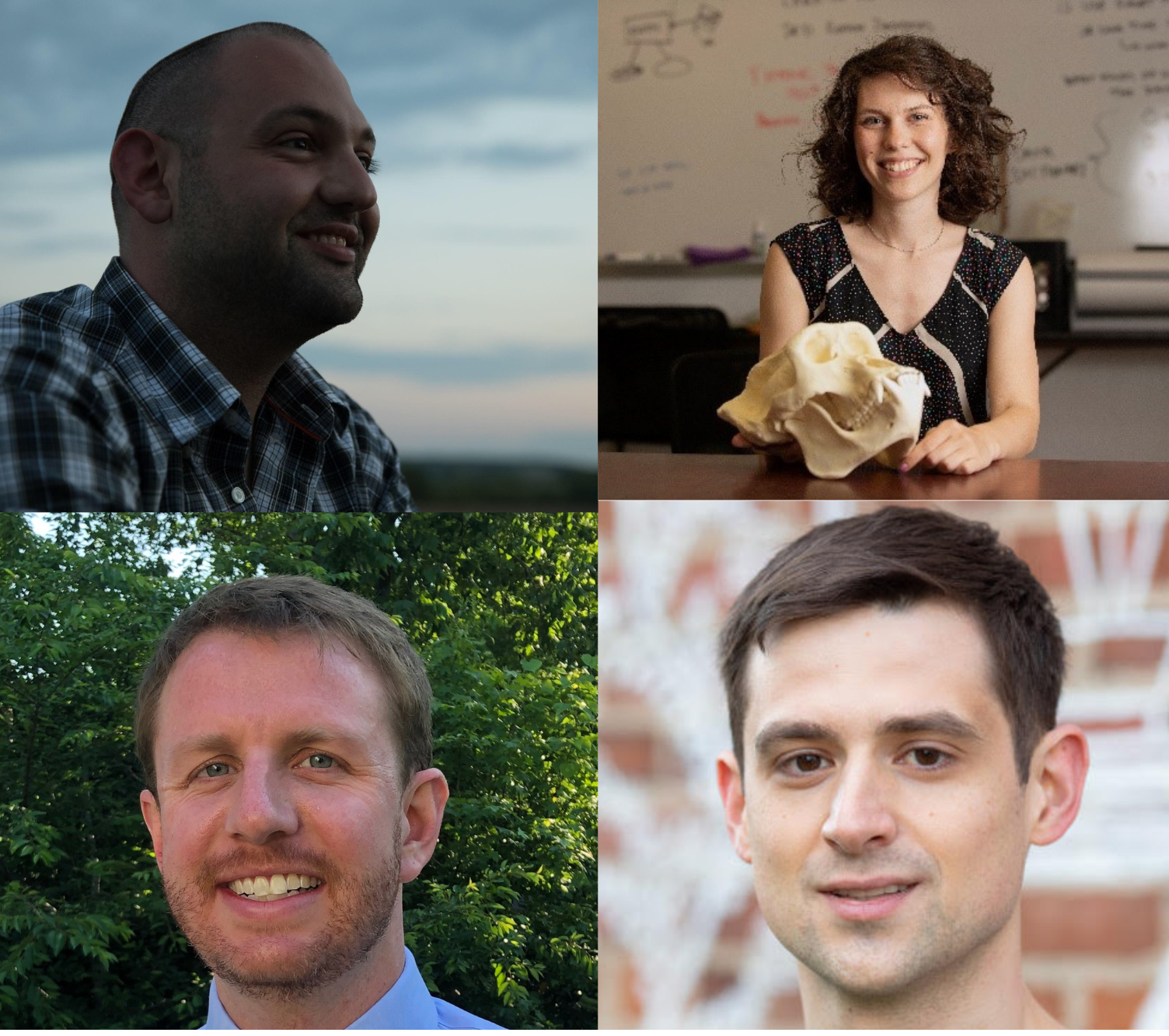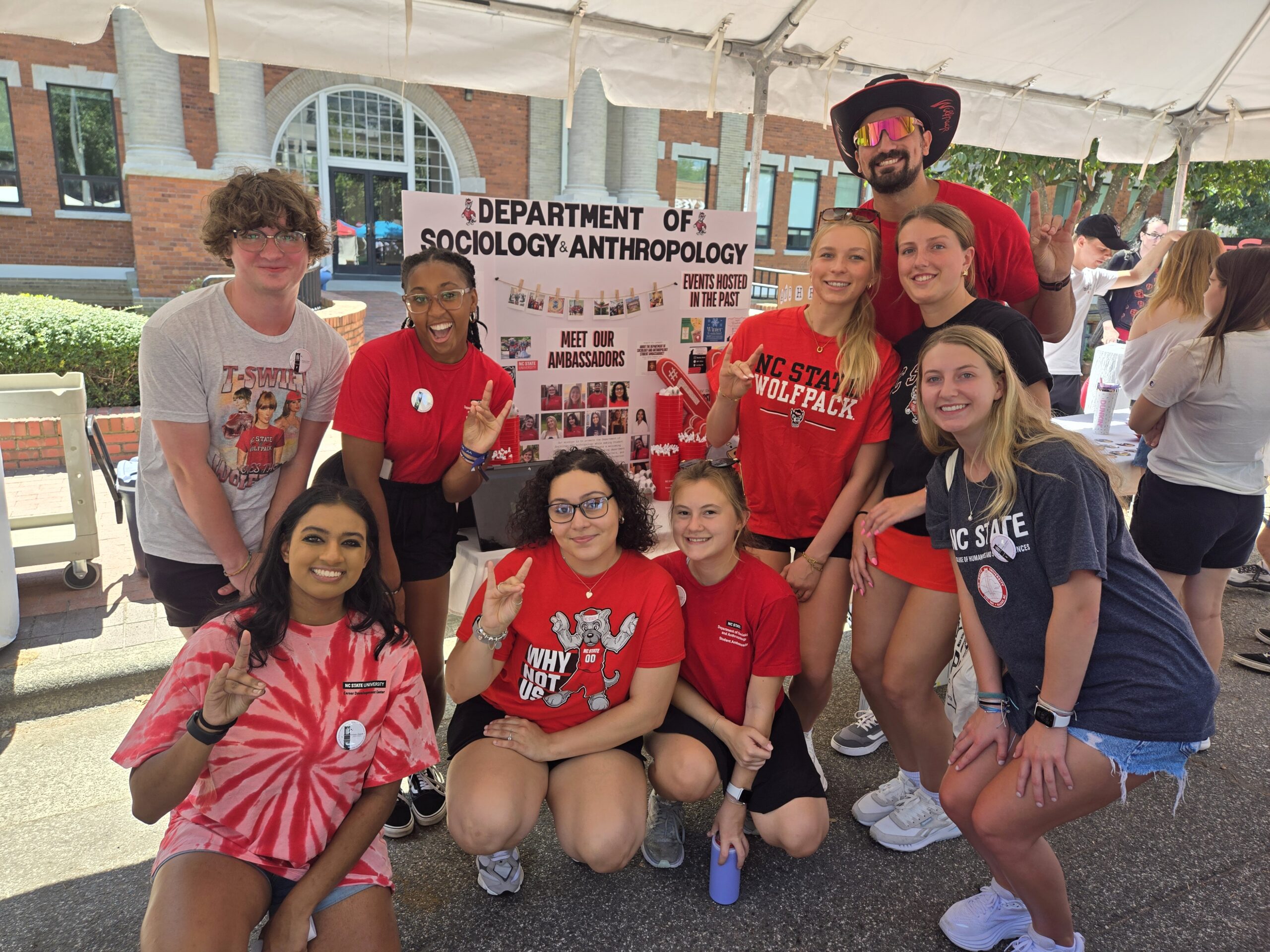Student Profile: Marlaina Maddux

In addition to quality faculty research and teaching, the Department of Sociology and Anthropology supports the intellectual and professional growth of our students, both at the undergraduate and graduate levels. We believe in providing our students with a solid foundation on which they can build their unique and individual efforts in society. We also believe in celebrating the success of our students.
Recently, we had the opportunity to speak with one of our many successful graduates, Marlaina Maddux, an alumnus in Sociology, with a minor in Environmental Sciences. Marlaina graduated from the department in August 2014. Marlaina now works as a campaign organizer for Environment Georgia, an environmental advocacy nonprofit.

Where are you from?
I am originally from Tucson, Arizona, but I grew up in Washington State.
What made you pick NC State?
I chose to apply to NCSU because of its land-grant status and because I was interested in and impressed by the work being done by College of Humanities and Social Sciences faculty. I had also heard that State’s environmental sociology program was very strong. Of course, the professor that led the program in the past and earned credibility relocated before I transferred to NC State, but it didn’t end up mattering in the end because I still got valuable knowledge from different professors and it actually forced me to branch out and seek different sociological areas of study rather than approaching my education with too narrow a focus.
What made you decide to be a sociology major?
I took intro to sociology and loved it. It wasn’t until a couple years later that I decided on it as a major, though. I realized that the changes I want to inspire cannot be achieved without social and systemic change and sociology has given me the knowledge and training I need to make those ideas reality.
Besides learning about different social structures and how they create and perpetuate patterns, I think the most important knowledge I gained was the idea that there really isn’t something as simple as “human nature” that can be found as the cause of different patterns and behavior, whether on the individual or group level.
What did you choose as your minor, and why?
I chose to minor in environmental science, which was originally going to be a second major. I knew that I wanted to protect the environment and while social structures are a key issue, it’s also necessary for me to be engaged in the [hard] scientific side of the issues as well.
What do you intend to do with your degree?
My goal was to work in the policy/advocacy realm as a means of influencing public policy related to the environment. My hard work has paid off, as I managed to land my dream job with Environment Georgia after graduating. Of course, holding an internship at Environment North Carolina helped me get my foot in the door.
How did you come across the internship with Environment North Carolina? And what sort of work did you do with them?
I had actually applied for the internship with Environment North Carolina after doing an online search for related jobs and/or internships, but my application evidently got lost in the pool. I had spoken with Dr. Stefano Longo and asked if he had any information or resources that might help me in finding an internship related to environmental conservation and he didn’t have any tips in the beginning, being new to the area himself, but a recruiter e-mailed him explaining the internship and why they were looking for sociology students for the program. Dr. Longo thought of me and forwarded me the e-mail. Instead of applying online – again – like the e-mail instructed, I decided to go straight to the source and contact the recruiter directly. I guess my persistence paid off in the end. My internship involved writing letters to the editor (LTEs) and opinion pieces for various North Carolina publications. I also collected petition signatures on campus and elsewhere in Raleigh to demonstrate public support for initiatives such as the EPA’s regulation of coal-fired power plants and carbon pollution. Grassroots and “grass tops” outreach were a significant part of my internship. That entailed creating and maintaining relationships with local business owners and public officials, as well as keeping our members up to date with environmental and legislative issues in North Carolina.

What are some of the most interesting or eye-opening classes you’ve taken in our department?
I think my favorite sociology course would have to be Corporate Power in America (457) with Dr. Schwalbe. To me, the knowledge I gained wasn’t surprising, but rather, it reinforced theories I had already touched on in other courses, with a more critical look at the practices and power held by certain groups throughout our society.
Have you worked with any professors on research?
I finished an honors thesis on climate change denial and its impact on public policy, especially pertaining to North Carolina. Michael Schwalbe and Stefano Longo were my advisors. They were each involved in both the theoretical and empirical research behind my paper.
For my honors thesis, I incorporated a combination of theoretical and empirical research. I did a survey of public discourse on the topic of climate change caused sea-level rise. Examples I used included interviews with stakeholders, opinion pieces (LTEs and Op-Eds), and other examples of the rhetorical strategies used by climate change denialists to connect with the public and impact their opinions on the subject. I found that there were a handful of recurring rhetorical strategies that could be found both at the micro and macro levels and established a correlation between the two. Financial contributions by conservative think tanks and foundations also played a role in shaping public policy. It was hard to document a clear causation for the way lawmakers voted on House Bill 819 since I was unable to reach those who voted in favor of it for interviews; however, the PBS Frontline documentary “Climate of Doubt” included interviews with key lawmakers and stakeholders involved with HB 819 being passed and what I deemed confessions to having based their decisions and opinions on information disseminated by key conservative actors in the climate change denial process. My work was guided primarily by Domhoff’s class domination theory.
Do you have any advice for students who want to succeed academically?
The best advice I can offer to other students is to take advantage of every available resource while in school. Whether it’s free film screenings, seminars, advisers, or even peers, it’s invaluable. Being able to turn to Jenny Rasch for guidance made my overflowing plate of work seem less daunting and certainly worthwhile. She also encouraged and supported me in a way that had a sincere impact on my confidence.
We’d like to thank Marlaina for participating in our series profiling the success of our undergraduate majors!
For more, please visit the Department of Sociology and Anthropology. If you are interested in undergraduate studies in sociology, please contact Jenny Rasch at jrrasch@ncsu.edu.
- Categories:


